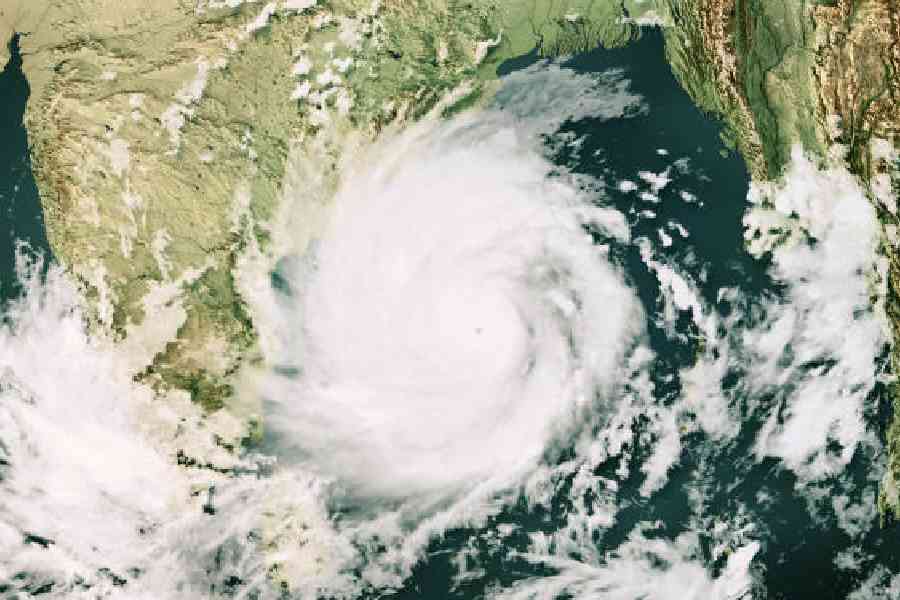In the 1960s, weather scientists found that the chaotic nature of Earth’s atmosphere would put a limit on how far into the future their forecasts might peer. Two weeks seemed to be the limit. Still, by the early 2000s, the great difficulty of the undertaking kept reliable forecasts restricted to about a week.
Now, a new artificial intelligence tool from DeepMind, a Google company in London that develops AI applications, has smashed through the old barriers and achieved what its makers call unmatched skill and speed in devising 15-day weather forecasts. They report in the journal Nature that their new model can, among other things, outperform the world’s best forecasts meant to track deadly storms and save lives.
Ilan Price, the paper’s lead author and a senior research scientist at DeepMind, described the new AI agent, which the team calls GenCast, as much faster than traditional methods. “And it’s more accurate,” he added.
He and his colleagues found that GenCast ran circles around DeepMind’s previous AI weather program, which debuted in late 2023 with reliable 10-day forecasts. Rémi Lam, the lead scientist on that project and one of a dozen co-authors on the new paper, described the company’s weather team as having made surprisingly fast progress.
The world leader in atmospheric prediction is the European Centre for Medium-Range Weather Forecasts. Comparative tests show that its projections exceed all others in accuracy.
DeepMind’s weather advance comes two months after other AI researchers in the company shared the Nobel Prize for chemistry. The news forms a bright counterpoint to public fears of AI stealing jobs and driving humans to the edge of obsolescence.
The natural chaos in Earth’s atmosphere means that all weather forecasts, including the two-week variety, grow less reliable as they peer further into the future. DeepMind backs its 15-day declaration with pages of evidence laid out in Nature.
The new GenCast agent takes a radically different approach from mainstream forecasting, which uses room-size supercomputers that turn millions of global observations and calculations into predictions. Instead, the DeepMind agent runs on smaller machines and studies the atmospheric patterns of the past to learn the subtle dynamics that result in the planet’s weather.
The DeepMind team trained GenCast on a massive archive of weather data curated by the European centre. The training period went from 1979 to 2018, or 40 years. The team then tested how well the agent could predict 2019’s weather.
Such training empowers all types of generative AI — the kind that’s creative. Mimicking how humans learn, it spots patterns in mountains of data and then makes new, original material that has similar characteristics.
Lam noted that GenCast’s generative skills were rooted in factual data gathered from nature rather than the Internet, notorious for its confusing mix of facts, biases and fallacies. “We have a ground truth,” he said of its dependence on natural phenomena.
The new agent’s forecasts are probabilistic — like those on the weather apps of smartphones. For instance, GenCast can give a range of percentages for the likelihood of rain in a specific region on a given day.
In contrast, its predecessor GraphCast offers a single forecast for a particular time and location. Known as deterministic, its method is essentially a best guess that gives no indication of the prediction’s uncertainty.
Probabilistic forecasts are considered more nuanced and sophisticated than the deterministic kind, and are more difficult to create. Typically, a GenCast forecast draws from a set of 50 or more predictions that produce its range of probabilities.
Despite all the effort that goes into those calculations, Price of DeepMind said, the new agent can generate a 15-day forecast in minutes compared with hours for a supercomputer. That can make its projections much timelier — an advantage in tracking fast-moving storms.
GenCast, the team says, can predict with great accuracy the paths of hurricanes, which annually can take thousands of lives and rack up hundreds of billions of dollars in property damage. The Nature paper said comparative testing showed that its hurricane track predictions consistently outdid those of the European centre.
For its part, the DeepMind team acknowledged its heavy reliance on the conventional world of weather readings — noting, for instance, how its AI training data comes from the giant European weather archive. Its computations also start with a snapshot
of the world’s current weather, what the team calls initial conditions.
The team hopes that other weather experts will test its new technology. Price said that the DeepMind team would share online its AI agent and underlying computer code.
He added that GenCast’s weather predictions would soon be posted publicly on Google’s Earth Engine and Big Query, giving scientists access to the new forecasts.
“We’re excited for the community to use and build on our research,” Price said.
Matthew Chantry, an AI specialist at the European centre, said Google and DeepMind might have hidden their AI advance behind a wall of corporate secrecy, using it “to make a better weather forecast for their own apps and telling no one how they did it”.
Instead, he added, the emerging field has embraced a public openness that’s helping “lots and lots of people engage in this revolution”.
NYTNS











